Breaking news
U.S. Navy Started LRASM Anti-Ship Missile Integration Tests on F/A-18E/F Super Hornet.
| 2015
| |
|||
| a | |||
Naval
Forces News - USA |
|||
U.S. Navy Started LRASM Anti-Ship Missile Integration Tests on F/A-18E/F
Super Hornet |
|||
The
U.S. Navy began initial integration testing of its Long-Range
Anti-Ship Missile (LRASM) onto the F/A-18E/F Super Hornet Aug.
12 at Patuxent River’s Air Test and Evaluation Squadron (VX) 23
facility. |
|||
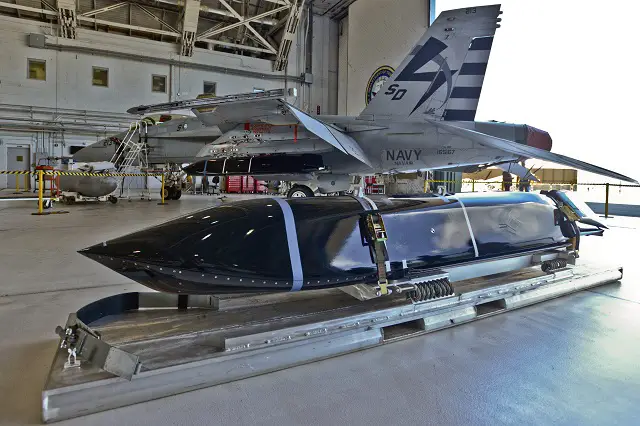 A
Long Range Anti-Ship Missile (LRASM) integrated on F/A-18E/F Super Hornet
Aug. 12 at NAS Patuxent River, Md. The program's flight test team is
conducting initial testing to ensure proper loading, unloading and handling
of the LRASM on the F/A-18 E/F. (U.S. Navy photo) A
Long Range Anti-Ship Missile (LRASM) integrated on F/A-18E/F Super Hornet
Aug. 12 at NAS Patuxent River, Md. The program's flight test team is
conducting initial testing to ensure proper loading, unloading and handling
of the LRASM on the F/A-18 E/F. (U.S. Navy photo) |
|||
The program’s
flight test team conducted missile load and fit checks using a mass
simulator vehicle, designed to emulate LRASM, in preparation for the
first phase of airworthiness testing with the F/A-18 E/F scheduled to
begin later this month. “These initial fit checks will familiarize the test team with the proper loading, unloading and handling of the LRASM on the F/A-18E/F,” said Greg Oliver, LRASM Deployment Office (LDO) assistant program manager for test and evaluation. “This testing will check clearances between the missile and the aircraft to ensure there are no negative impacts when carrying LRASM.” |
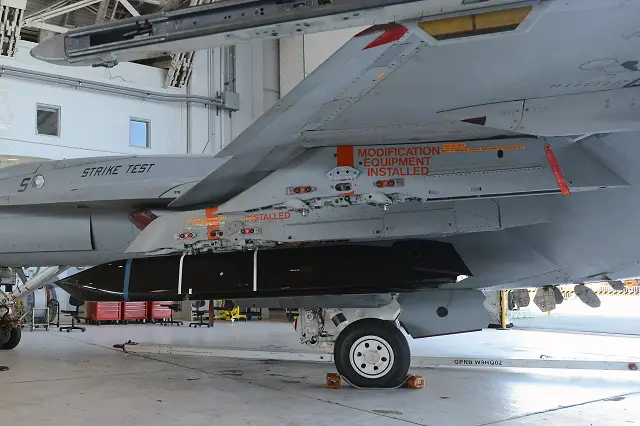 Initial
fit checks are conducted on the Long Range Anti-Ship Missile (LRASM) Aug.
12 at NAS Patuxent River's Air Test and Evaluation Squadron (VX) 23 facility
in preparation for the first phase of airworthiness testing with the F/A-18
E/F. (U.S. Navy photo) Initial
fit checks are conducted on the Long Range Anti-Ship Missile (LRASM) Aug.
12 at NAS Patuxent River's Air Test and Evaluation Squadron (VX) 23 facility
in preparation for the first phase of airworthiness testing with the F/A-18
E/F. (U.S. Navy photo) |
|||
Integration
efforts and flight testing will continue over the next few years at both
NAS Patuxent River and Naval Air Weapons Station China Lake to clear LRASM
for flight operations on the aircraft. “This is an exciting time for the Navy,” said Capt. Jaime Engdahl, the Navy’s Precision Strike Weapons program manager. “This missile will help us pace the growing maritime threat and provide the warfighter with an urgently needed capability to engage surface combatants at extended ranges.” When operational, LRASM will provide flexible, long-range, advanced, anti-surface capability against high threat maritime targets. LRASM is set to be fielded on the B-1B Bomber in 2018 and the F/A-18 E/F in 2019. |
|||
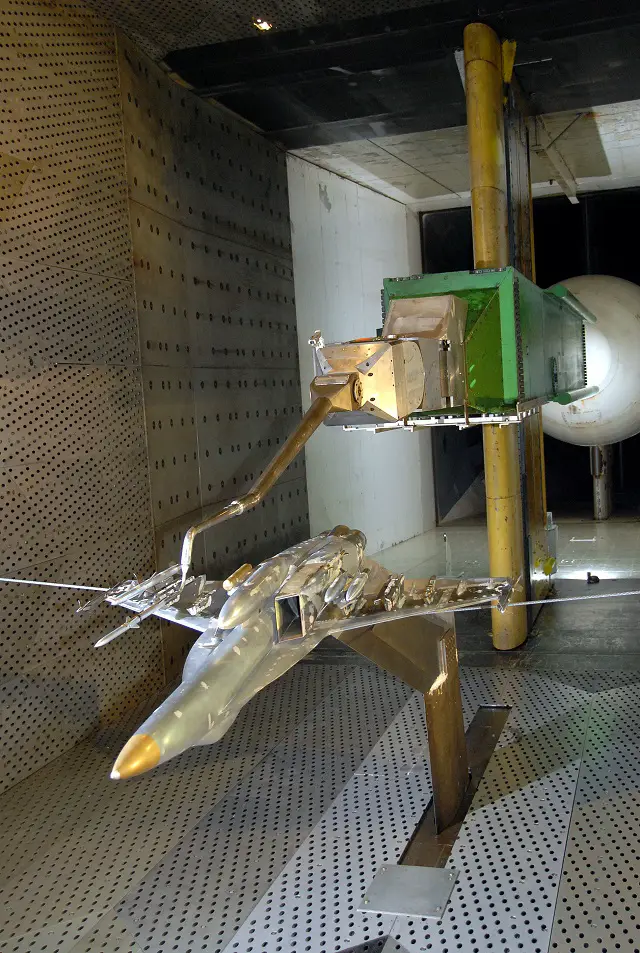 File
picture: This is a view of 1/10-scale sting-mounted AIM-120C store and
F/A-18E/F aircraft models during a break in store separation testing inside
AEDC’s 16-foot transonic wind tunnel. (Photo by David Housch) File
picture: This is a view of 1/10-scale sting-mounted AIM-120C store and
F/A-18E/F aircraft models during a break in store separation testing inside
AEDC’s 16-foot transonic wind tunnel. (Photo by David Housch) |
|||
Store
separation testing of the Long Range Anti-Ship Missile for the F/A-18E/F
Super Hornet was conducted in June this year in the 16-foot transonic
wind tunnel (16T) at the Arnold Engineering Development Complex (AEDC). The Super Hornet sports a total of 11 weapon stations. Its single-seat 'E' model and two-seat 'F' model perform a variety of missions that include fighter escort, close air support, enemy air defense suppression, day and night strikes with precision-guided weapons, and tanker. The LRASM is a long-range subsonic cruise missile designed for better range and survivability than current anti-ship weaponry. It is carried with the wings and tail stowed and then deployed once released from the aircraft. This missile development program is a joint effort of the Defense Advanced Research Projects Agency, Naval Air Systems Command and the United States Air Force. To learn more: Link to LRASM Long Range Anti-Ship Missile technical datasheet |
|||
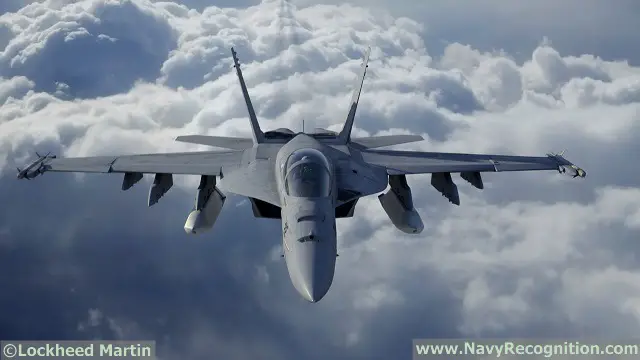 CGI:
An F/A-18E Super Hornet fitted with two LRASM missiles. CGI:
An F/A-18E Super Hornet fitted with two LRASM missiles. |
|||
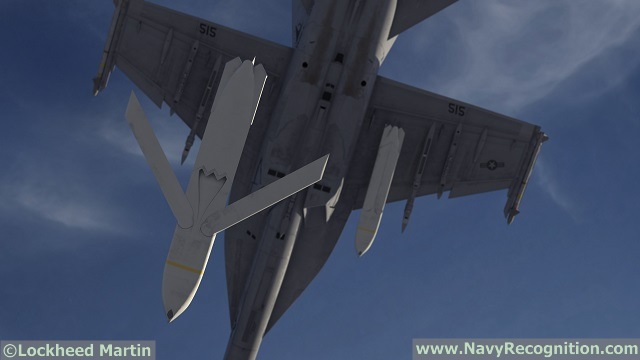 CGI:
A LRASM is launched from an F/A-18E Super Hornet CGI:
A LRASM is launched from an F/A-18E Super Hornet |
|||


























